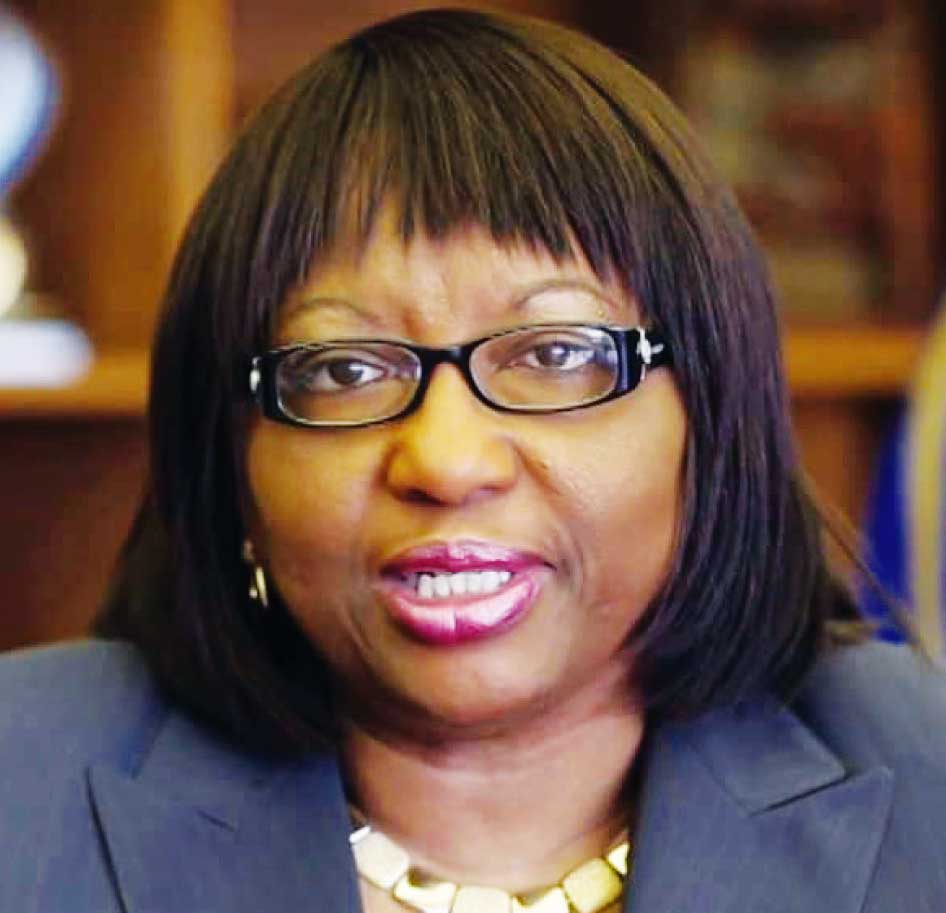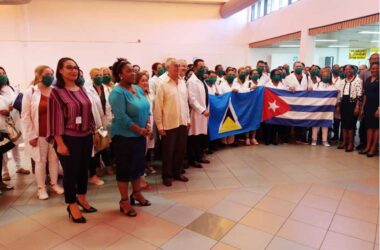“The weight of this loss is incalculable,” — PAHO Director

“Today, we mark another tragic milestone in our region: over one million people in the Americas have now died from complications of COVID-19. We’ve lost more people to this virus than the entire population of many cities,” Pan American Health Organization Director Carissa F. Etienne said today.
Speaking at a press briefing, she said “the weight of the loss is incalculable,” noting that over 44 million people in the Americas have now been infected with COVID-19, including more than two million in the last week.
“One million people with hopes, dreams and a future cut short. One million mourning families – many unable to say goodbye – who will feel their absence forever. The scars and the lessons of this pandemic will stay with us,” Etienne said.
The COVID-19 pandemic “has brought a triple crisis throughout our region as it has ravaged our health systems, fractured our social protection, and destabilized our economies. The loss of one million people from this virus should serve as an urgent call that we must do more to protect ourselves and each other from getting sick. This includes strong calls to action to reinforce the public health measures that are needed now in each of the places that are seeing outbreaks,” Etienne said.
Calling health workers in the region “our heroes who have cared for every patient that has been hospitalized for this virus,” the PAHO Director said, “Many have risked their own lives and those of their families to care for those who are sick, and their heroic efforts have saved many COVID patients.”
Etienne added, “Although there’s limited data, we know that more than a million health workers in our region have become sick with COVID-19 and at least 4,000 – most of them women – have died as a result, affecting our ability to respond to this public health threat. Each of these people has a face, a name and story.”
She recognised one of the many health workers as an example of those lost, Dr Rosemary Costa Pinto, who headed the leading public health agency in the Brazilian state of Amazonas. “Today, we celebrate her life and we thank the millions of health workers still on the frontlines of this virus, who are saving lives every day. Their countless sacrifices will not be forgotten,” Etienne said.
The PAHO Director outlined the course of the pandemic in North America, with the highest number of cases and growing pressure on hospital capacity, and in the Caribbean, where some smaller countries are seeing a rapid acceleration of cases.
“By contrast, most countries in Central America – except for Honduras and Guatemala – are seeing a decrease in COVID-19 infections over the previous week,” Etienne said. In South America, “while hospitalizations are on the rise throughout much of the region, including in Colombia, Chile and Peru, the situation in Brazil is particularly worrisome,” she added.
The pandemic of COVID-19 “has ushered in a mental health crisis, as we’ve been shaken by fear, depression, isolation, and loss that is made especially acute as we mark this grim milestone, Etienne said, noting that 29 countries have reported disruptions in mental health services.
Etienne also highlighted the economic impact of the pandemic, “Today, 16 million more people are living in poverty, compared to when the pandemic started and millions of others are at risk of falling deeper into poverty in the wake of this virus.” Rising food prices also place millions of people at risk of going hungry, she added.
As COVID vaccines are rolled out over the coming months, we need health systems to track vaccinations and prioritize those most at risk of severe illness, like the elderly and our health workers so we can reduce demand on our hospitals.
“We owe a great debt to our frontline health workers, so I’ve been pleased to see that in countries where vaccinations are underway, doses are being prioritized for health workers, with similar plans across other countries that will roll out vaccines soon.
Broad access to vaccines represents our way out of this pandemic, but while supplies are limited, we need to focus on preventing new infections now to keep the virus under control,” Etienne sad.












![Amy Stephen [Photo credit: Community Tourism Agency]](https://thevoiceslu.com/wp-content/uploads/2026/01/Amy-Stephen-feat-380x250.jpg)
